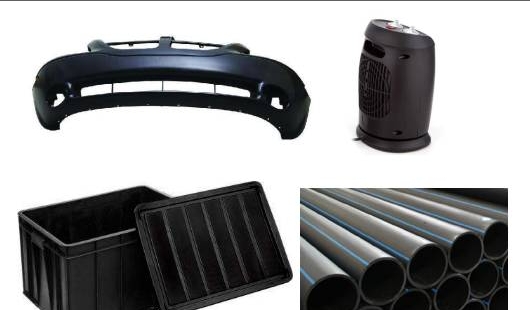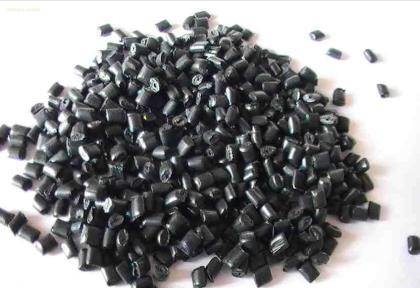发布日期:2018-03-30 浏览次数:1045
Why is the black PP material more difficult to achieve halogen - free flame retardancy than the
light - colored PP material? - Albon polymer
But with the expansion of the demand of PP in the automotive industry, construction industry,
electrical insulation industry and shipbuilding industry, people have higher requirements for the
flame retardancy of PP. But the limiting oxygen index value of PP (LOI) 17.0%-18.5% only,
belong to flammable materials, combustion and charring rate low, combustion heat, combustion
is easy to produce the droplet, easily make flame propagation two fires occurred, thus limiting
the use of PP in many fields, so the flame retardant PP modification, is particularly important for
expanding its application fields. At present, the flame retardants applied to PP can be divided
into halogenated flame retardants, metal hydroxides, silicon flame retardants, nano flame retardants,
phosphorus flame retardants, intumescent flame retardants, etc.
Intumescent flame retardant (IFR) is a low toxic halogen-free flame retardant with P and N as
main components. It is consistent with the development trend of flame retardant and environmental
protection, and is a kind of environment-friendly flame retardant with wide application prospects.
IFR plays a flame retardant effect mainly through the interaction of acid source, carbon source and
gas source, which is generated by thermal decomposition to produce carbon layer. IFR has added less,
efficient, low toxicity, low smoke and no droplet advantages than other flame retardant material has
excellent flame retardant properties, therefore, intumescent flame retardant has attracted more and
more attention, has also been applied to various polymer materials, the most active research field of
flame retardant has become the research object. The use of more IFR in the acid source is ammonium
polyphosphate (APP), Portland, maleic anhydride, ammonium phosphate, phosphoric acid three phenyl
ester, melamine phosphate, urea phosphate, boric acid or borate; carbon source is formed based
expansion of carbon layer, dehydration in the combustion process by carbonization. The main source of
carbon PER, phenolic resin, thermoplastic polyurethane (TPU), polyamide, butyl alcohol four, cyclohexyl
alcohol six, starch, maltose, three triazine compounds; gas when heated, decomposition produces a
large number of non-toxic, non flammable gas, the gas can be combustible gas dilution air the oxygen
gas or the substrate surface, and then play the flame retardant effect. The main sources of common
gas are melamine (MEL), dicyandiamide, APP, urea and so on.
Application of intumescent flame retardant type flame retardant polypropylene products in light has been
quite mature, but in high density on flame retardant polypropylene parts still has a certain degree of difficulty.
In PP products processing, in order to improve the dyeing and anti ageing properties and anti ultraviolet
ability of the products, usually add a certain amount of black masterbatch, PP products add black masterbatch
its life than light PP products, which often exposed to PP outdoor products, such as water, drip irrigation
pipe. Communication cables and other PP products is particularly important.

Two, the difficult point of flame retardant of black PP material? The flame retardants of antimony
bromide play an important role in flame retardancy mainly in gas phase and condensed phase.
The effect of color powder and filler on its flame retardancy is minimal, but it is restricted by
environmental protection. The flame retardant mechanism of non halogen-free phosphorus nitrogen
is expanding into carbon, isolating oxygen and heat source to play the role of flame retardancy.
The main component of black masterbatch for carbon black, carbon black is combustible, large
surface area, and the surface has many pores, easy to form a space network channel, and not
easy to be destroyed, these pores exist, will affect the density of the flame retardant carbon layer,
the carbon layer has no good isolation effect. In the same carbonresidue case, the flame retardant
effect of reach, resulting in poor parts of the black flame retardant flame retardant in light
colored products, and adding amount of black powder or black mother of larger, more difficult
to achieve and flame retardant, blindly increase the dosage of the flame retardant, will deteriorate
the performance of materials, to lose good processing and use of materials, and there is a big
challenge to the cost of composite material.
Zhongshan connaght New Material Co. Ltd. for polyolefin halogen-free and environmentally friendly
flame retardant series, HF-900D expansion type halogen-free flame retardant polypropylene
designed specifically for high density, containing ammonium polyphosphate and special structure
of three triazine charring agent and synergistic agent, phosphate, phosphorus, nitrogen and
silicon as flame retardant elements, through the the formation of efficient expansion of carbon
layer and reach the oxygen barrier, fire flame retardant effect. Low dosage of HF-900D flame
retardant high blackness by UL94 PP V-0 (1.5mm) GWIT, 750 C and 960 C GWFI test. It
has the characteristics of low sensitivity to color powder, high performance price ratio,
good carbon formation and high carbon layer strength.

Table 1 Comparison of HF-900D and ordinary APP expansion type flame retardant additives and
flame retardant properties in high blackness in PP
Guangzhou XiJia Chemical Co.,Ltd